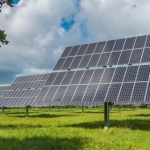English Essay on Electricity Shortage in Pakistan & Its Solution
Pakistan is facing an acute electricity shortage due to a number of factors including low gas supply high demand and insufficient power generation capacity. The country’s energy sector is in a state of crisis with power cuts lasting up to 18 hours a day in some parts of the country. This has led to widespread protests and unrest as well as a significant impact on the economy. The government has been working to address the issue but the situation remains critical.
Pakistan is an electricity-deficient country with an acute energy crisis. The energy sector is in a shambles with widespread power outages and load shedding commonplace. The country’s power plants are unable to meet the rising demand for electricity resulting in a shortfall of around 4,000 megawatts (MW). This has caused immense problems for businesses and households alike as well as for Pakistan’s economy as a whole.

Electricity Shortage in Pakistan, Causes, Effects, Solutions
What Are Some of the Effects of the Electricity Shortage?
Electricity shortages can have a number of effects on the people of Pakistan. For one, they can lead to blackouts, which can disrupt the normal functioning of businesses and homes. They can also cause prices to rise, as manufacturers and businesses have to pay more for electricity. And finally, they can lead to health concerns, as people who are unable to get access to clean energy may be at a greater risk for illnesses such as respiratory problems.
Causes of Electricity Shortage in Pakistan
Electricity shortage in Pakistan is a perennial problem. The country has a large population and growing demand for electricity, but inadequate infrastructure and outdated technology have prevented the country from meeting its energy needs.
Several causes of the electricity shortage in Pakistan can be traced back to years of mismanagement and neglect. The government has failed to invest in necessary infrastructure such as power plants, transmission lines, and storage facilities. This has led to chronic shortages of electricity that have become even more acute in recent years as the country has been struggling with economic recession.
Pakistan has also failed in constructing any new mega dam for electricity production. Wapda is unable to control the line losses. We could not even promote solar and wind energy. Our atomic program is also not emphasizing on electricity production. We are unable to import electricity from Iran and India due to political reasons. Kala Bagh dam has become a political issue. Electricity theft is also a big issue. Dr Samar Mubarak Mand has failed in using the Thar coal for electricity production.
Furthermore, Pakistan’s aging electrical grid is badly in need of renovation. Even if all the necessary upgrades were made, it is estimated that it would take at least 10 years to bring the grid up to modern standards. This means that there will a delay in overcoming the electricity shortage in Pakistan.
What are Citizens’ Reactions to the Electricity Shortage?
The electricity shortage in Pakistan has caused widespread panic and concern among citizens. Many people have been left without power for long periods of time, which has led to widespread frustration and anger. Citizens are worried about the safety of themselves and their families during this time of crisis, and they are also concerned about the economic consequences of the shortage. Many businesses have been forced to close down due to the lack of electricity, which has had a negative impact on the economy as a whole. The government is doing everything it can to address the problem, but it will likely take some time for things to get back to normal.
What are the Government’s Responses to the Electricity Shortage?
The electricity shortage in Pakistan is a problem that has been lingering for years. The government has responded to the electricity shortage by investing in renewable energy sources, such as solar and wind, but it has been difficult to implement these solutions due to the lack of infrastructure and funds. Additionally, the government has tried to address the shortages by importing electricity from neighboring countries, but this solution is also not sustainable. The government needs to find a long-term solution to the electricity shortage if it wants to avoid further economic instability and social unrest.
Solutions of Electricity Shortage in Pakistan
Electricity shortage is a serious problem in Pakistan. The country has an electricity demand of around 25000 MW but only 20,000 MW of electricity is generated. This shortfall has led to blackouts and rolling power failures. Various solutions to address the electricity shortage have been proposed by experts and government officials. These include increasing the generation capacity, importing more electricity from other countries, building new power plants or reforming the distribution network.
Suggestions For Overcoming Electricity Shortage in Pakistan
We should also build Kala Bagh dam immediately. There is a need of using Thar coal for electricity production. Hydroelectricity production is the best solution of energy crisis in Pakistan. We need to use water of canals and rivers for generation of electricity. Our atomic scientists should try too use atomic energy for producing more and more electricity. Thar coal must be used for generation of electricity. We also need to minimize the circular debt. Private sector should be encouraged to invest in energy sector. Last but not least we must make a electricity commission for addressing this grave problem.
Conclusion
The government has been trying to address the issue through a number of measures such as building new power plants and upgrading existing ones but these have not been enough to solve the problem. The country will need to make more significant changes if it is to overcome its energy crisis.
I am a professional content writer and have experience of 10 years. I also launched first ever English monthly magazine of human rights in Pakistan. Majority of content on this website is written by me.

